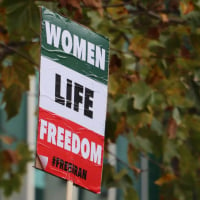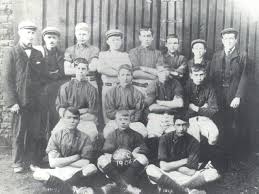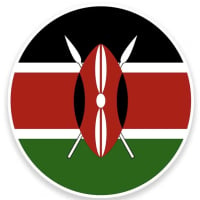New Article - Happy Birthday, Mr Duchâtelet

One is that he is said to have a keen interest in history.
So we hope he'll be fascinated to know that 9 June marks the 109th birthday of Charlton Athletic Football Club.
It is, if we say so ourselves, a fascinating and inspiring story. Most professional clubs were formed by adults, often with backers from local business, churches or work places. Some, like Chelsea and Palace who were created in the same year, 1905, as Charlton, were ready made as instant football and southern league sides respectively. Who said franchises were something new?

The 14 and 15 year olds who gathered in Eastmoor St, lower Charlton outside the Lads of the Village pub did not have such an easy start. They had to work their way up through the local leagues, were disbanded in 1915 due to the first world war, were reformed when the conflict was over, turned professional and in 1921 were elected into the Football League.

The board meetings from those early league years recently came to light again. While searching a store room at the Valley mainly used to house tax and financial records for the legally required seven year period some of the Charlton Athletic Museum's Trustees found some much older ledgers. Not just financial but Jimmy Seed's original match diaries and the board minutes from those first steps into national football.
If we think the Club has had financial ups and down in recent years, or in the 80s or 60s then that is a pattern that was started back in the 20s. The directors seemingly juggled what little money the Club had, sold players, put off creditors and begged and borrowed to keep the Club in existence. But keep it going they did until new owners were found in the Orient. Clapton Orient to be precise but there was then a different history, one of successive promotions, cup finals and decades in the top flight.
So perhaps history teaches us that financial struggle is not new but neither is success. Nor changes in ownership. Not many of us alive today remember the great leap forward of the Jimmy Seed years but plenty recall the exile, the return and the rebirth of the Valley as a premiership ground. As it was in the past so it can be again in the future.

Another anniversary this year marks 100 years since Great Britain went to war over "the scrap of paper" that guaranteed Belgian neutrality. Who would have thought that a century on it would be a Belgian who is the guarantor of the future of that amauter club made up of teenage boys.
As a student of history Roland may well wonder how often history repeats itself and will have learnt how events from times past still echo in the present day. And he may well know the quote from George Santayana 'Those who cannot remember the past are condemned to repeat it.'
So Happy Birthday Roland and to all the others around the world to whom Charlton Athletic means something. You have taken on a heavy responsibility Mr Duchâtelet, an important stage in a long history is entrusted to you. Look after it well.
Comments
-
Good stuff.1
-
He's trying to get us a team of teenagers again !11
-
Nice synopsis. Thanks for the reminder.0
-
-
You did get me a copy of that poster, didn't you?ShootersHillGuru said:Surprised you get time to write this stuff what with your busy schedule ;0)
0 -
Its a pub in Creek Rd, Deptford. I was there two Fridays ago. Bit young for me but the DJ wears a nice line in cardigans.Henry Irving said:
You did get me a copy of that poster, didn't you?ShootersHillGuru said:Surprised you get time to write this stuff what with your busy schedule ;0)
1 -
-
Retro sounds more my styleShootersHillGuru said:Or this
0 -
Good piece.
I didnt know that in addition to winning the World Cup in 66, that Geoff Hurst played for us in 1947 ?!0 -
Shocking admission Mr P.The_President said:Good piece.
I didnt know that in addition to winning the World Cup in 66, that Geoff Hurst played for us in 1947 ?!
Write out 100 times
"Gordon Hurst won the FA Cup with Charlton"
; - )
Medal in the Charlton Athletic Musuem BTW0 -
Sponsored links:
-
thanks Henry0
-
Fantastic Henry - superbly written as always1
-
Good stuff Monsieur l'Henri et merci beaucoup.1
-
Shame we still play like a pub team at times1
-
Splendid words and sentiments, Henry. I'm certain that RD relishes the historical perspective of our Club, the ethos of what CAFC as a club is about (also substantially reflected in the awe-inspiring achievements of CACT, of which Roland must be undoubtedly and justifiably very proud if only by association) and (by and large) our good standing within the game. He forked out and got all this, with a stadium and football team thrown in for good measure !! I truly think we will find ourselves in safe hands - the formidable challenges that lie ahead come mostly from outside, and I am confident the Network will duly rise to the occasion.
1 -
Henry, was expecting you to do a Marilyn Monroe and be jumping out of a cake in order to sing our Mr President happy b'day but I suppose he will have to make do with the thread on CL this year.
1 -
Its ok, its not my birthday. However, it is my sons !Absurdistan said:Henry, was expecting you to do a Marilyn Monroe and be jumping out of a cake in order to sing our Mr President happy b'day but I suppose he will have to make do with the thread on CL this year.
3 -
I hope RD had a nice birthday and got lots of nice presents.0
-
Cheers Henry, interesting stuff. My Dad who eventually refereed an England v France International with some great old names like Matt Busby, Joe Mercer and Dennis Compton playing, told me that he was the league referee associated to Charlton and also a goalkeeper in Sam Bartrams early days here. Not sure how true that was, but a great memory for me.0
-
Happy Birthday you evil genius0
-
Sponsored links:
-
Matt Busby was a Scot born and bred, Granpa ........ I doubt he played for England.Granpa said:Cheers Henry, interesting stuff. My Dad who eventually refereed an England v France International with some great old names like Matt Busby, Joe Mercer and Dennis Compton playing, told me that he was the league referee associated to Charlton and also a goalkeeper in Sam Bartrams early days here. Not sure how true that was, but a great memory for me.
However, he was the manager of the Great Britain team in the 1948 Olympics.
Perhaps your Dad refereed one of those games?
0 -
Henry, is the photo of the clinic, the "Lads of the Village" pub ?
That was of course more recently The Thames Barrier Arms pub, which closed some years ago.
We went in there a couple of times about 10 years ago.
They had hardly any beer (1 pump I think) & no food.
Worst pub ever, although we did get to play pool I think :-)
It closed a year or so later.0 -
Covered End said:
Henry, is the photo of the clinic, the "Lads of the Village" pub ?
That was of course more recently The Thames Barrier Arms pub, which closed some years ago.
We went in there a couple of times about 10 years ago.
They had hardly any beer (1 pump I think) & no food.
Worst pub ever, although we did get to play pool I think :-)
It closed a year or so later.
Yes, it is what was the lads of the Village.
0 -
Made my debut playing darts for the Rose of Denmark at the Lads of the Villlage - was a decent pub then but that was in 1975!!Henry Irving said:Covered End said:Henry, is the photo of the clinic, the "Lads of the Village" pub ?
That was of course more recently The Thames Barrier Arms pub, which closed some years ago.
We went in there a couple of times about 10 years ago.
They had hardly any beer (1 pump I think) & no food.
Worst pub ever, although we did get to play pool I think :-)
It closed a year or so later.
Yes, it is what was the lads of the Village.
Apologies for being off topic!0 -
Matt Busby was a Scot born and bred, Granpa ........ I doubt he played for England.
On the face of it you are right Oggy Red, but I have a picture of the teams lining up, England in white shirts. My dad is in the picture but I need to look at it to be sure I am remembering it correctly. I also have my Dad's match entry ticket, and the picture was published in a book that I have at home. I will check tonight and report back tomorrow. I am aware that during the war players were able to swop teams according to circumstances.0 -
Just a thought could it have been an English League representative team?Granpa said:Matt Busby was a Scot born and bred, Granpa ........ I doubt he played for England.
On the face of it you are right Oggy Red, but I have a picture of the teams lining up, England in white shirts. My dad is in the picture but I need to look at it to be sure I am remembering it correctly. I also have my Dad's match entry ticket, and the picture was published in a book that I have at home. I will check tonight and report back tomorrow. I am aware that during the war players were able to swop teams according to circumstances.0 -
That's cool. What is it now as a matter of interest ;0)JessieAddick said:Great article Henry.
I used the date June 9, 1905 minus 100 years as the pin number for my first ever bank card for more than four years. So I always remember it.
2 -
A good read for the slightly younger generation, thanks for that.0
-
From the article:
'It is, if we say so ourselves, a fascinating and inspiring story. Most professional clubs were formed by adults, often with backers from local business, churches or work places. Some, like Chelsea and Palace who were created in the same year, 1905, as Charlton, were ready made as instant football and southern league sides respectively. Who said franchises were something new?
image
The 14 and 15 year olds who gathered in Eastmoor St, lower Charlton outside the Lads of the Village pub did not have such an easy start. They had to work their way up through the local leagues, were disbanded in 1915 due to the first world war, were reformed when the conflict was over, turned professional and in 1921 were elected into the Football League.'
A great emphasis from Henry here.
My Sunday league team was formed by guys having a regular kickabout in Charlton Park, and we lasted about 7 years in total which we thought was not that bad.
Lots of teams were given a massive helping hand by some kind of organisation such as the Church, Southampton were originally Southampton St Marys for example, Celtic by a Catholic priest. others were works teams like West Ham (Thames Ironworks) and Arsenal of course, or attached to local industry like Railways or Shipbuilding. Others still, as Henry says like Chelsea, were deliberately formed to try to cash in on the popularity of football.
Charlton Athletic may be amongst a very few existing top level clubs started, like my Sunday League team if you like, by local fellas, and then supported by the local community (Bryant) and had to climb their way up.
Does anybody know of any other top level clubs with such humble origins as us?1










